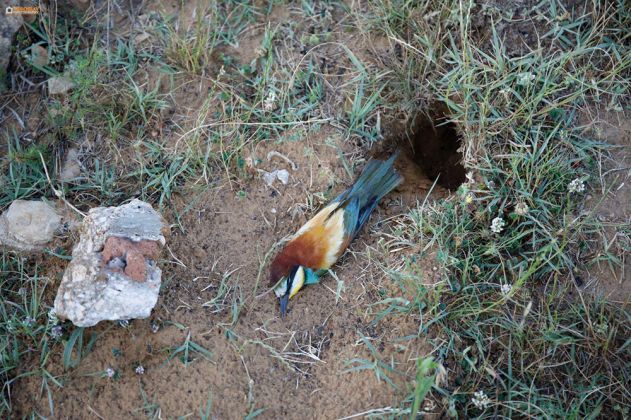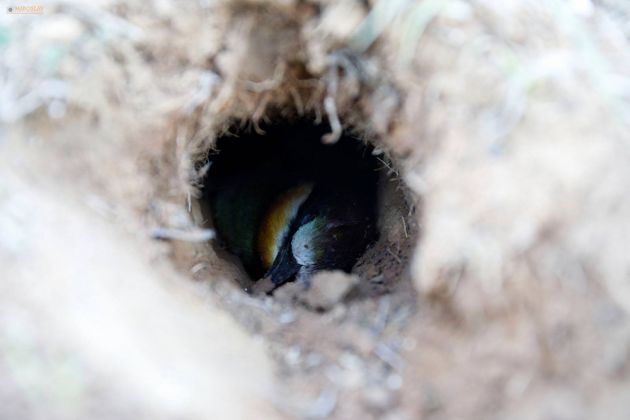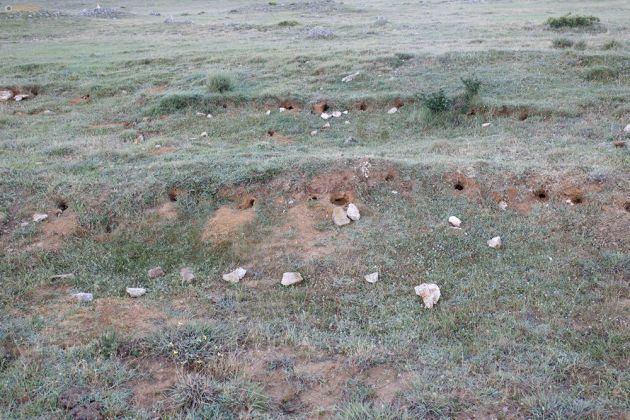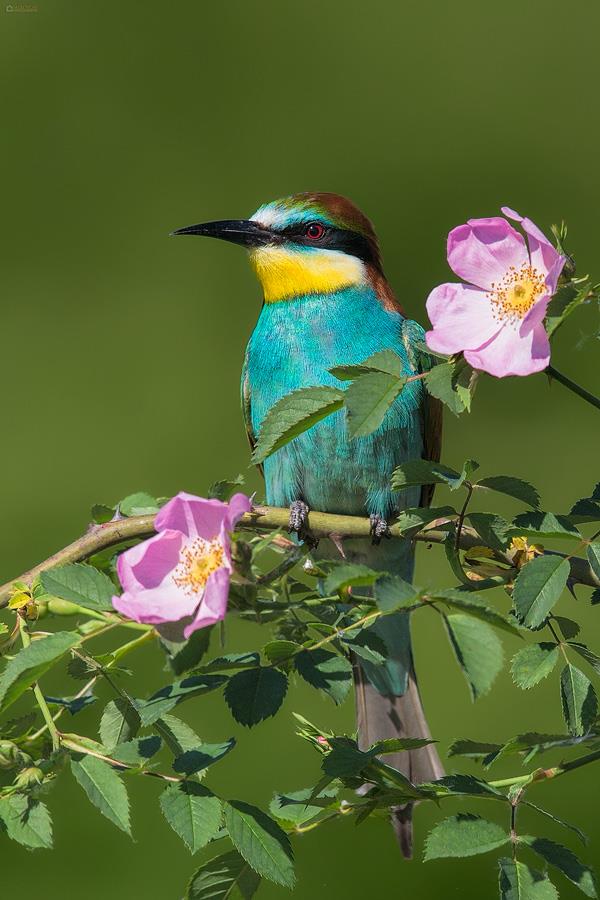Wildlife photographer Miroslav Marić from Zagreb published a Facebook post on Friday featuring some disturbing news, as reported by Dalmacija danas on June 10, 2017.
Peruća Lake (Peručko jezero) in Split-Dalmatia County, the second largest artificial lake in Croatia, used to be home to one of the largest Croatian colonies of European bee-eater birds. Yes, used to – according to Marić's post, someone has taken it upon themselves to brutally destroy the local bird population. All 35 holes in the ground that the birds used for nesting were purposely plugged by rocks, leading to a slow and painful death of the trapped animals.
This bird species mostly feeds on insects, but as their name suggests, a part of their diet includes honey bees. It's a known fact that bee-keepers see them as a threat, but that shouldn't be a good enough reason to violently wipe out a whole bird colony. The bee-eaters are considered an endangered bird species in Croatia, making the actions of the unknown perpetrator even harder to fathom. Marić reported the incident to the police.
Here's a statement the photographer posted on Facebook along with multiple photos:
"Sad news! Nesting grounds of the second largest Croatian colony of bee-eater birds, located at Peruća Lake, has been destroyed this week. The irresponsible individual or individuals have purposely blocked the entrance holes of the birds' nests (plugged each hole with a large rock). Numerous birds who were in the holes at the time have suffered and died. I visited the same spot 5 days ago and all the birds were alive and cheerful, in the nesting phase. I've been following the colony for 3 years, and it has grown from 3-4 bird couples to a much larger number, until it has been destroyed this week. I'm sad, as one weary bird, the last from the nest to stay alive, has died in my hand this morning, I felt its warmth, I felt when its heart stopped beating.... I found it all this morning and immediately reported everything to the police and the State Institute for Nature Protection. The inspection was carried out. There's reasonable doubt the crime has been committed by a local bee-keeper and hunter. So, for education's sake – the bee-eaters are a protected species, bees make for only 10% of their diet, and they prefer bigger insects such as hornets, the great natural enemy of the bees. Attached are 2 sad images from today and one we would all like to see, alive and free.. Thank you for your attention."






